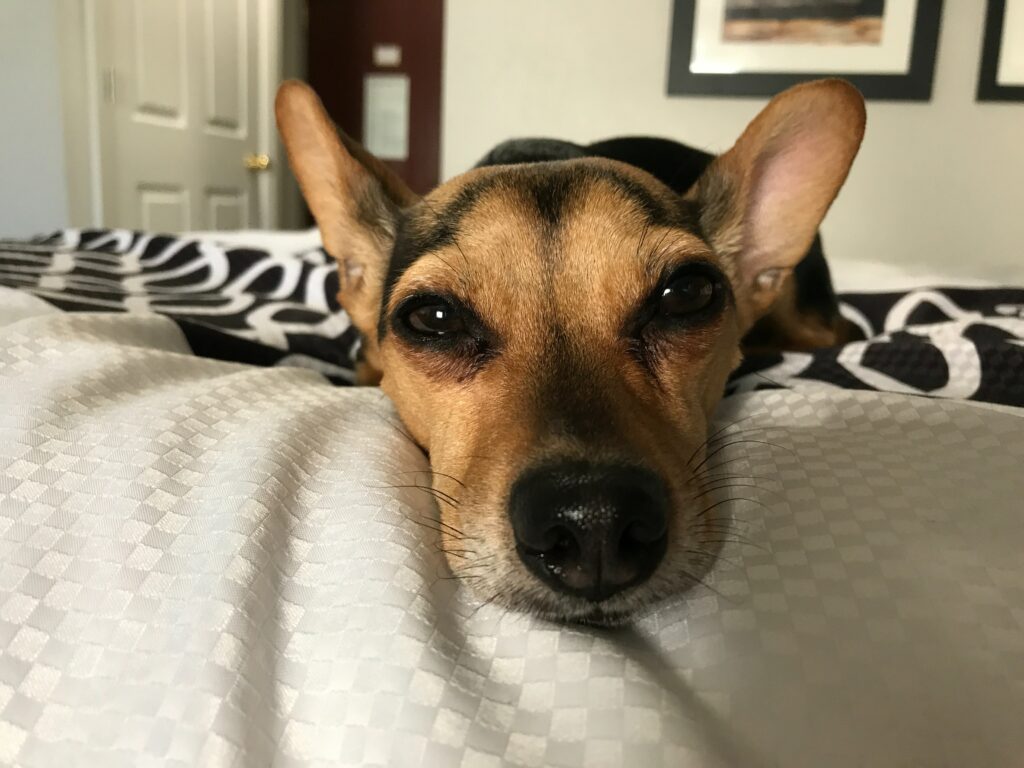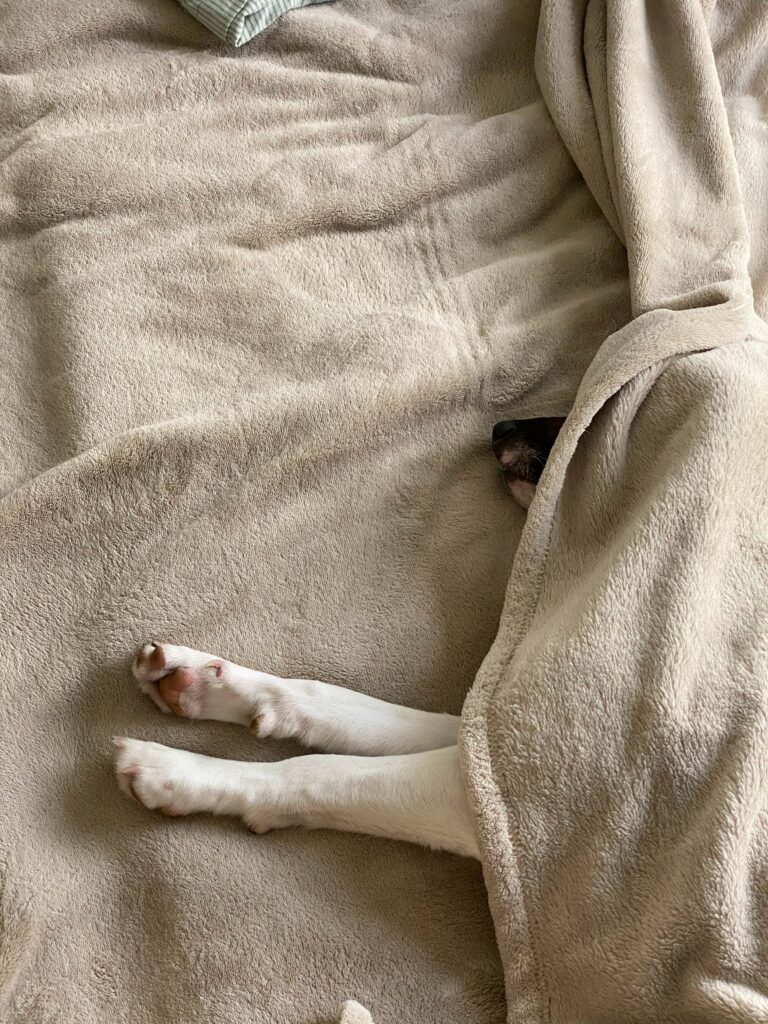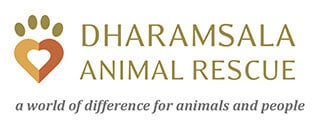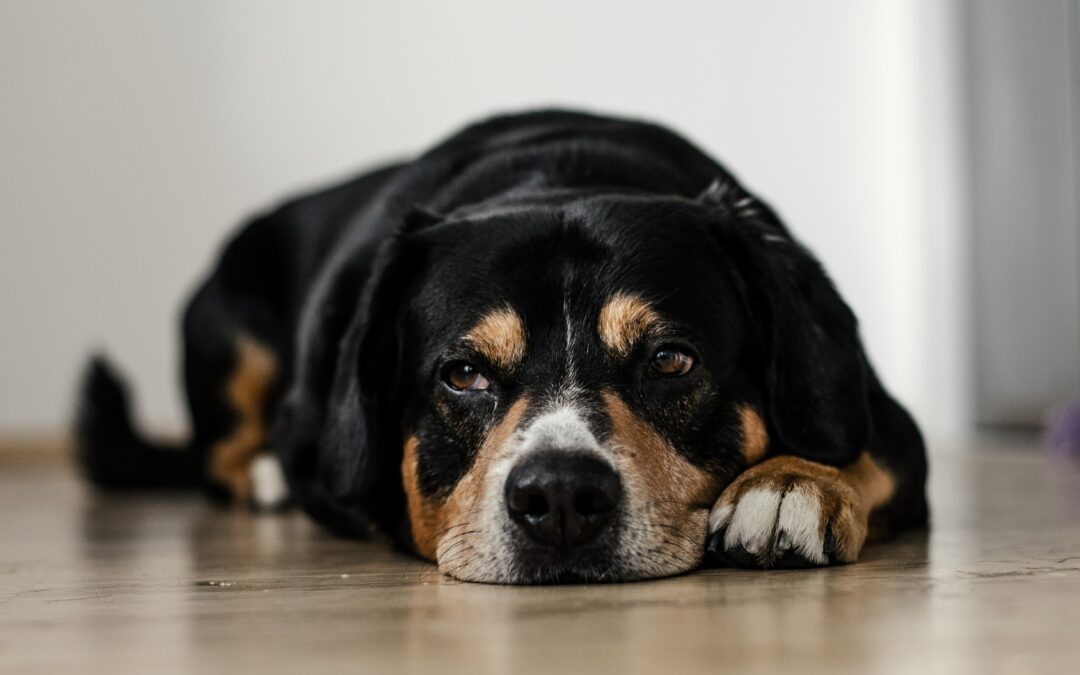Have you ever had some bad seafood and gone off your food for a day or two? Or been a bit stressed and lost your appetite? It happens to dogs too.
Of course, there can be other, more serious reasons why your pooch is not putting away their kibble at their usual rate. But, most of the time the issue can be easily remedied with a bit of TLC and keen observation.
Like us humans, dogs can lose their appetite due to external circumstances, a simple digestive issue, a toothache or simply because they don’t like their new brand of dog food!
Top questions to ask when your dog isn’t eating
Has my dog eaten something they shouldn’t have?
Even the most observant dog owner sometimes isn’t fast enough to stop the best furry friend from snaffling something awful from the street. Sometimes it can move on through without symptoms but other items can cause gastrointestinal distress.
If your dog is eating grass, it can be a sign that there are intestinal issues and if they’re vomiting or have diarrhoea, these are other signs to get to the vet. Another reason to get them to the vet would be if you suspect they may have swallowed a toy, rock or something that could cause a blockage. In this case, the vet may need to operate.

Photo by Cheryl Senko on Unsplash
Does my dog just not like their dog food?
This is one of the simplest explanations why your dog might not be eating. It’s common for dogs to take a dislike to their food, especially when you change brands or as they age. Like us humans, they may just crave a bit of variety.
Try switching the brand or entice them with something more tempting like a chicken broth to see if they’ve actually lost their appetite or whether it might just be their dog food.
Is my dog stressed or anxious?
A change in routine, a relocation, a breakup, a new pet or baby coming into the household, or a death are all examples of events that can make your pup stressed. These life events can also cause canines to have disruptions in their appetite and behaviour.
This is why it’s important to pay extra attention to your furry friend in turbulent times and try, as much as possible, to keep their routine the same. Of course, it’s not always possible to hide our sadness and emotions from them, and they can provide us with comfort, but try not to let it be at their expense. Ask for support if you’re going through a hard time and need someone to step in to look after your pup for a bit.

Photo by vadim kaipov on Unsplash
Is my dog ill?
If your dog’s not eating, it can be an indication of a more serious illness, which, sadly, is more likely if they are a senior dog. Loss of appetite can be a sign of illnesses such as pancreatitis, liver or kidney disease, cancer, hormonal diseases or chronic gut problems.
If they are vomiting, have diarrhoea or their loss of appetite is sustained, contact your vet immediately. It’s always better to get them checked out in case. Note down any other symptoms you’ve noticed too – this will help the vet come quicker to decisive action.
Is my dog on medication?
Be aware that some kinds of medication can make your canine companion feel nauseous or lose their appetite. Your vet should warn you about this when prescribing any medication, but if in doubt, just double check with them.
It could be that your dog is having a reaction to their meds and simply needs a different course to protect their sensitive stomach.
Does my dog have dental pain?
Is your pup still drinking water? Are they only avoiding their dry food? Not showing signs of gastrointestinal distress? Then the problem might be their teeth. It can be painful for dogs to chew and crunch dry food if they have toothache or gum disease and they’re much more likely to opt for soft food.
Other symptoms of dental problems include: inflamed gums, plaque build-up, chewing on one side, missing or broken teeth, bad breath, weight loss, drooling excessively or rubbing their mouth.
Dogs stop eating for a plethora of reasons, and most will have a simple explanation and resolution. The best advice is to observe them, to know their ‘normal’ behaviour so that when something seems out of the ordinary, you’re ready to act to keep them healthy!
Learn more about us
Subscribe to the DAR Newsletter below:
About the author

Vaila Erin is a writer, lover of animals, and a bit of a nomad. For her, life is about stories — observing yourself and others so that you can laugh, cry and entertain each other with its absurdities. Connect with her at vailaerin.com or via LinkedIn.


I have a 12 year old sheltie who has stopped eating.Ive tried different dog foods but to no avail. I really
My chihuahua pup 4 months old, ate only a little yesterday and nothing today. I had my grandson here two days ago and i think she ate some of his blueberries as she threw up that night but nothing since.
My dog only wants to eat meat, but there’s biscuits in the bowl that my dog doesn’t want to eat. She has gotten skinny what should I do
My dogs suddenly will not eat their usual kibble. No matter what I mix in…they won’t eat it
I’ve checked for recalls there are not any.
It’s Canadian made. Canadian naturals the Turkey salmon
I have made a big mistake and given Teddy human bits of food and he loves it. Small bites while I am eating. Now he won’t touch his dog food. I’ve realized what a mistake I’ve made. Now I’m suffering the consequences. I’ve stopped the human food, given him som soft can dog food but he still won’t eat it. It’s still been several days. Am I doing the right thing? Is there anything else I can do? I feel so bad!!!
I have made a big mistake and given Teddy human bits of food and he loves it. Small bites while I am eating. Now he won’t touch his dog food. I’ve realized what a mistake I’ve made. Now I’m suffering the consequences. I’ve stopped the human food, given him som soft can dog food but he still won’t eat it. It’s still been several days. Am I doing the right thing? Is there anything else I can do? I feel so bad!!!